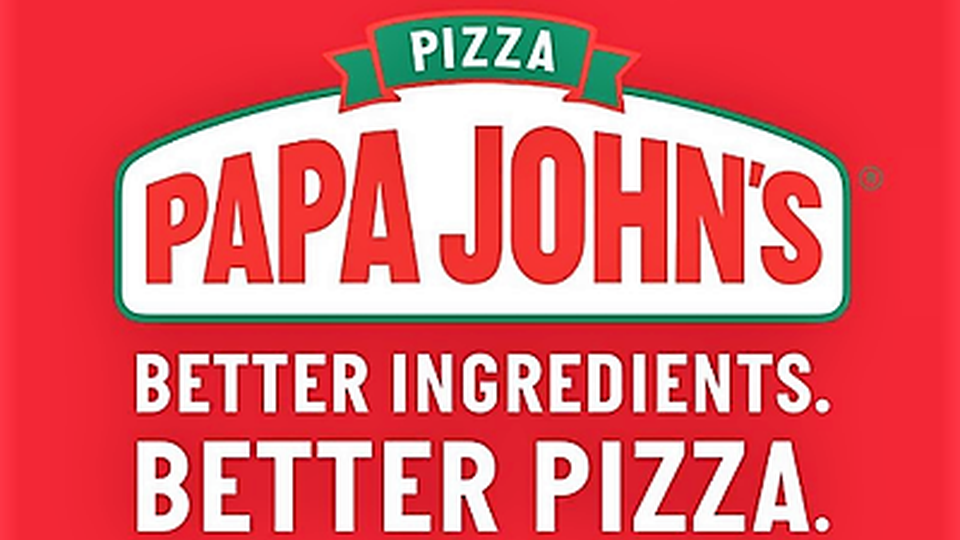Article
Papa John's stock value spikes to near 52-week high
Love was definitely in the air on the Nasdaq Friday, where Papa John's saw its price spike at one point to nearly its highest level in the past 52 weeks. And the New York Stock Exchange was also pretty lovey-dovey Valentine's Day, where both Domino's and Pizza Hut parent, Yum Brands, saw some gains.

February 17, 2020 by S.A. Whitehead — Food Editor, Net World Media Group
Traders gave Papa John's International a big smooch on Valentines Day when the stock spiked momentarily Friday around 9:30 a.m. at a 52-week high of $67.65. The value settled back down by the close to $65.88 at the end of trading Friday, which was still up $1.27 from the previous week's close of $64.61.
This comes after Papa John's said it will pay out a dividend of 22 ½ cents a share to stockholders of record on Feb. 10. The payout will be made on Feb. 21.
Meanwhile at competitor and larger pizza brand, Domino's Friday, it was also a Valentine's Day worth a few bear hugs, when that stock leapt up $16.24 on the week to close Friday at $291.60, allowing the brand to recover some ground from recent weeks of falling values and nearly bringing the stock back up to its value last November.
At multi-QSR company and Pizza Hut parent, Yum Brands, traders also showed some love in the form of $3.25 lift in the stock's value over the last week, to put it at $105.28 at the closing bell Friday.
In fact, the only brand of those monitored here weekly that ended up with a box of withered roses on the annual day of love was double-pizza brand parent, Rave Restaurant Group, Inc. The controlling company for pizza brands, Pie Five and Pizza Inn, saw its stock drop 26 cents over the week's trading to settle in at $1.36 at the close on week's end.
Cheese
The disparity in price between barrels and block on the cheese markets that has had so many worried narrowed a bit last week in trading on the Chicago Mercantile Exchange, where the weekly average for barrels shot up 9 cents to $1.56, while the average block price dropped 4 cents to $1.87. Barrels closed at $1.59, while 40-pound blocks ended at $1.82.
Demand for cheese is mixed, but mostly steady throughout the country, according to the U.S. Department of Agriculture. Restaurant sales are reported as positive in the East, while retail demand is steady in the West.
Cheese production is very active despite some setbacks from maintenance issues which have mostly been resolved. And though cheese market tones remain a bit agitated, that wide price gap between barrels and blocks is thinning, taking its toll largely on block prices.
Wheat
Compared to last week, cash bids for wheat were mostly lower, beginning with Kansas City U.S. No. 1 Hard Red Winter, ordinary protein rail bid, which was 1 ¾ cents lower, from $5.46-$5.56 per bushel. Kansas City U.S. No. 2 Soft Red winter rail bid was not quoted.
St. Louis truck U.S. No 2 Soft Red Winter terminal bid was 12 cents lower at $6.09 per bushel. Minneapolis and Duluth U.S. No. 1 Dark Northern Spring, 14% to 14.5% protein rail, was 5 3/4 to 30 3/4 cents lower, from $6.36 3/4-$6.61 ¾ per bushel. Portland U.S. Soft White wheat rail was steady to 13 cents lower, from $6.20-$6.22 per bushel.
Vehicle fuel
The effects of the coronavirus, though still centered in China, is beginning to affect global crude demand forecasts, which the American Automobile Association said have been cut due to the potentially deadly infection, which CBS News said is estimated now to have infected more than 60,000 people.
The U.S. Energy Information Administration said that demand is continuing to remain low which is helping to pull down prices at the pump. As a result, AAA forecasts that these falling price trends will continue this week, which is starting with the average price of a gallon of regular now at $2.44 nationally, down from $2.56 a month ago.
Mid-grade ($$2.78) and premium ($3.05) are also both down 11 cents to 12 cents from the price this time last month, AAA reported. In fact, diesel at $2.88 and E85 at $2.18 are also down about that same amount from this time last month.
Natural gas
Natural gas spot prices rose at most locations the report week that ended on Feb. 12, according to the U.S. Energy Information Administration. The Henry Hub spot price rose from $1.85 per million British thermal units (MMBtu) last Wednesday to $1.87/MMBtu yesterday. The Henry Hub is a Louisiana natural gas pipeline that not only connects four Louisiana pipelines, but also nine interstate pipelines and serves as the official delivery location for futures contracts on the New York Mercantile Exchange.
And on the Nymex, the price of the March 2020 contract decreased 2 cents, from $1.86/MMBtu to $1.84/MMBtu over that same seven-day period. The price of the 12-month strip averaging March 2020 through February 2021 futures contracts rose 2 cents/MMBtu to $2.172/MMBtu.
The net withdrawal from working gas totaled 115 billion cubic feet (Bcf) for the week ending Feb. 7. Working natural gas stocks totaled 2,494 Bcf, which is 32% more than the year-ago level and 9% more than the five-year (2015–19) average for this week.
The natural gas plant liquids composite price at Mont Belvieu, Texas, fell by 27 cents/MMBtu, averaging $4.33/MMBtu for the week ending Feb. 12. The prices of natural gasoline, propane, butane and isobutane fell by 2%, 3%, 15%, and 19%, respectively. Isobutane prices have experienced larger-than-normal price movements over the past month. The price of ethane rose by 3%.
About S.A. Whitehead
Pizza Marketplace and QSRweb editor Shelly Whitehead is a former newspaper and TV reporter with an affinity for telling stories about the people and innovative thinking behind great brands.









